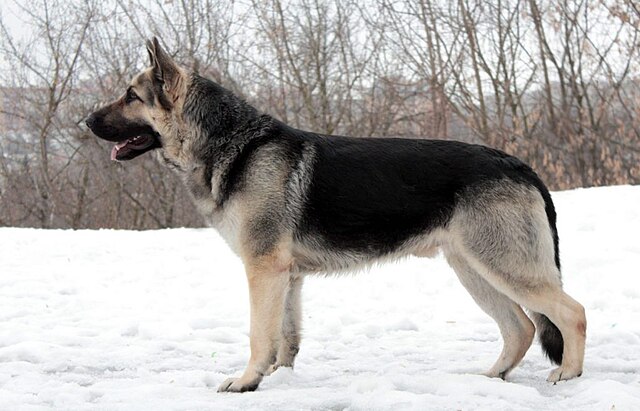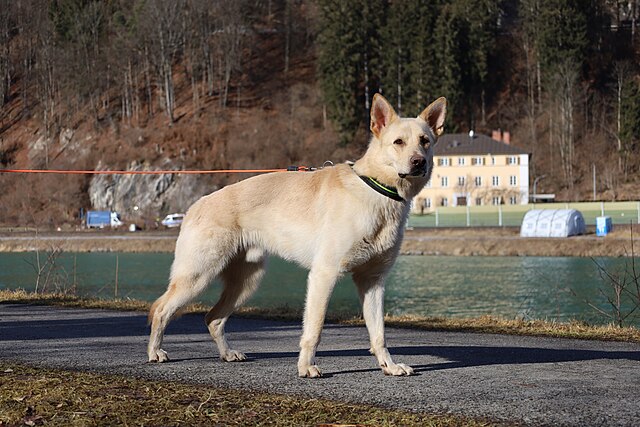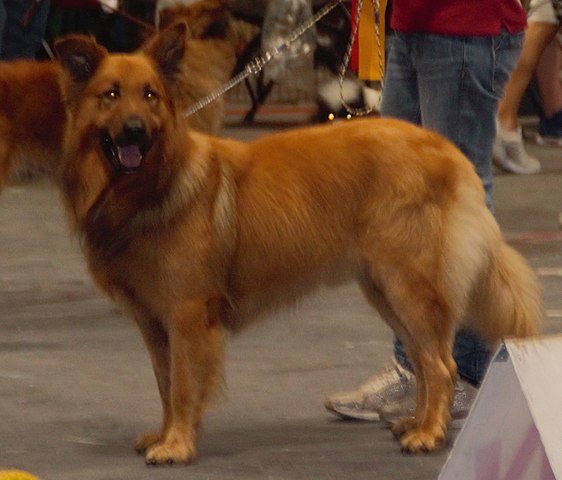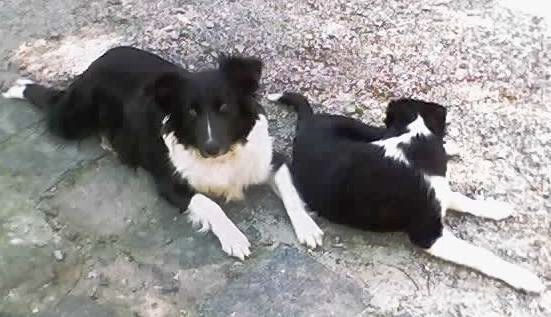The Catahoula Leopard Dog – the state dog of Louisiana – is an independent-minded yet faithful breed. This sturdy and powerful dog is not lacking in endurance and can be put to work in a number of different tasks, completing all sorts of varied jobs with ease. His original job was that of a hog hunter, which gives him his fearless temperament – he will not hesitate to go after a wild boar many times his own size! In addition to this task, he is also used for other jobs such as a watchdog, stock dog (herding), tree dog, guard dog and/or tracking dog. Today the breed can also be seen competing in obedience, rally and agility trials. In addition to these tasks, this versatile American breed makes a gentle and loyal companion.
Alert to his surroundings, the Cat is confident and naturally protective. Strangers will not be accepted blindly. He will also let his owners know when something is wrong and may take action to “correct the problem” if danger does arise. He can have a similar attitude toward other dogs and is more prone to dog-aggression than other breeds. These are some of many reasons why the breed is for experienced dog owners only! When everything is smooth-sailing, he can be affectionate, gentle and even playful. Good with older kids when supervised by an experienced dog owner. Again, experienced is the key word here. This wonderful breed needs to be owned only by those who understand and can manage this beautiful, yet challenging breed.
Leopards must be given early socialization from the time they are young puppies in order to accustom them to the world. Naturally territorial and suspicious of strangers, these traits can get out of hand if they haven’t been raised correctly! Furthermore they need early and continued obedience training, as well as firm boundaries and household rules. This is not a dog for the weak-willed as they will take the top spot of the household if they feel leadership is lacking. Nor is this a breed for someone who plans on using excessive force or intimidation in training as they can be defensive when threatened. Keep training fun to prevent boredom – this breed is smarter than many humans! Also keep in mind that although these working dogs crave a job, they have a primitive personality to boot and are not push-button obedience dogs. 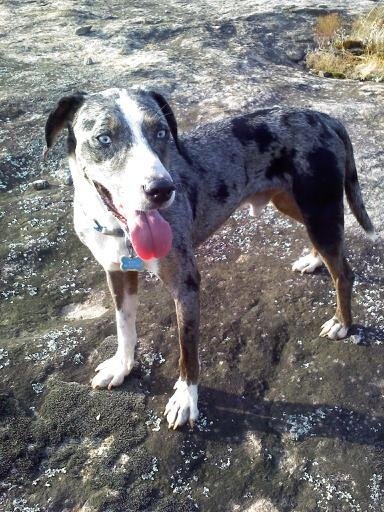
The Catahoula Leopard requires a ton of exercise to keep him fit and healthy. Walks around the block won’t cut it. He needs long hikes, vigorous retrieve games (with toys made for destructive chewers), swimming opportunities and similar. Looking for a safe, non-toxic option for your Catahoula Leopard? Check out the Benebone, made with your dog’s safety in mind – https://amzn.to/410F5TG Additionally, not only should he only live in an area with plenty of room to move and run (no apartments for this active breed), but he most definitely needs a regular job to occupy his mind as well. Like other high-energy, intelligent working breeds, without enough mental/physical outlets he can be extremely difficult to live with. Cats without a job are very destructive!
Catahoulas have a smooth coat that is often recognizable by a number of interesting and unique colors/patterns, including spotted, solid, brindle or patched. Extremely vivid and unusual eye colors (including two eyes of different colors and/or eyes containing multiple colors in the iris itself) are also frequently seen in the breed. When looking at puppies, remember that the more white in the coat, the more likely the dog may have hearing issues (unfortunately the merle and patched merled patterns are also linked to deafness). Luckily, there are tests which can let you know if the dog in question has an issue with deafness. This is a large breed with an athletic, although noticeably sturdy frame weighing as much as 90 pounds when fully mature (bitches will be slightly smaller).
Leopard Dogs do have a couple of health issues to be aware of – namely hip dysplasia, eye problems and the aforementioned deafness. Make sure to only buy from a responsible breeder who can show you the health clearances of the parents and related dogs in their lines. All purebreds and mixed breeds can develop health issues but buying from a breeder who health tests makes it easier to avoid the potential of problems down the line. When healthy, Cats frequently live between 12-14 years.
Affiliate Disclaimer
As an Amazon Associate, I earn from qualifying purchases. This means that if you click on an affiliate link on this site and make a purchase, I may earn a small commission at no additional cost to you. Rest assured that I only link to products I have used, or use on a regular basis, and trust enough to recommend them to you!
